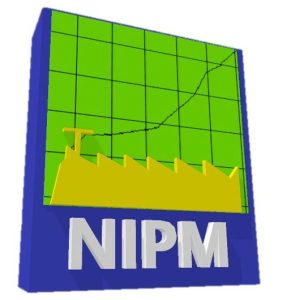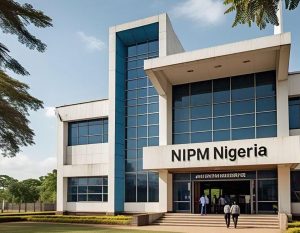Role and Responsibilities of Operations Manager
Nigerian Institute of Production Management (NIPM Nigeria) is a leading provider of top-notch educational and training programs in all aspects of operations management.
Role and Responsibilities of Operations Manager

By
Dr. Olaniyi Opanuga, PhD, FNIPM
Faculty Lead, Department of Production and Operations Management,
Nigerian Institute of Production Management- NIPM Nigeria
Introduction
An Operations Manager plays a vital role in ensuring the efficient and effective management of an organization’s operations.
The role and responsibilities of an Operations Manager are diverse and require a deep understanding of business planning and strategy, operational processes, supply chain management and logistics, project management, maintenance management, safety, health and environmental (SHE) management, financial management, human resources management and more.
Nigerian Institute of Production Management (NIPM Nigeria) is a leading provider of top-notch educational and training programs in all aspects of operations management.

Overview
An Operations Manager is responsible for planning, organizing, controlling, coordinating, and directing the operational activities of an organization to meet customer needs and stakeholders expectations.
Effective operations management is crucial for organizations to achieve their objectives and goals.

Key Role and Responsibilities of an Operations Manager
The Operations Manager’s role in overseeing the day-to-day operations of an organization, driving the highest level of efficiency and effectiveness and ensuring the smooth running of systems and processes to produce and deliver optimum value cannot be controverted. Other roles and responsibilities include:
– Strategic Planning: Developing and implementing operational strategies to achieve organizational objectives
– Developing Corporate Policies, Programmes, and Procedures: Creating and implementing policies, programs, and procedures to guide operational activities
– Process Management: Designing, implementing, and improving operational processes to maximize efficiency and effectiveness
– Supply Chain Management: Managing supply chains to improve efficiency, reduce costs, and enhance customer satisfaction
– Quality Control and Quality Assurance Management: Ensuring that products or services meet quality standards and customer expectations
– Resource Planning, Allocation, Control, and Management: Allocating resources, such as labor, equipment, and materials, to optimize operational performance
– Operations Strategy: Developing and implementing operational strategies to achieve organizational objectives
– Hiring, Training, and Professional Development: Recruiting, training, and developing operational staff to ensure they have the necessary skills and knowledge.
– Forecasting and Operations Planning: Forecasting demand and developing operational plans to meet customer needs.
– Preparation and Analysis of Financial Reports: Preparing and analyzing financial reports to inform operational decisions
– Conflict Resolution: Resolving conflicts and disputes that arise in the course of operational activities
– Interdepartmental Relations and Cross-functional Team Co-Ordination: Collaborating with other departments and teams to ensure operational activities are aligned with organizational objectives
– Business Negotiations: Negotiating contracts and agreements with suppliers, customers, and other stakeholders
– Project Management: Planning, organizing, and controlling projects to achieve specific objectives
– Risk Management: Identifying and mitigating risks that could impact operational activities
– HR Programmes Support: Supporting HR programs and initiatives to develop and engage operational staff.
– Managing and Controlling Budgets: Managing and controlling operational budgets to ensure financial sustainability
– Developing, Implementing, and Improving Business Systems and Processes: Developing and implementing business systems and processes to improve operational efficiency and effectiveness.
– Managing Teams and Performance: Managing operational teams and performance to ensure they are aligned with organizational objectives.
– Managing Inventory: Managing inventory levels to ensure that customer demand is met while preventing waste and maximizing efficiency.
– Vendor Management: Managing relationships with vendors and suppliers to ensure that operational needs are met.
– Improving Customer Service Quality and Enhancing Customer Satisfaction: Ensuring that customer service quality is high and customer satisfaction is enhanced.
– Enforcing Regulatory Compliance: Ensuring that operational activities comply with relevant laws and regulations
– Managing Resources to Achieve Organizational Goals and Objectives: Managing resources to ensure that organizational goals and objectives are achieved.

Importance of Operations Manager’s Role
– Improved Efficiency: Optimizing resources and reducing waste.
– Enhanced Quality: Meeting customer expectations and quality standards.
– Increased Productivity: Maximizing output while minimizing input.
– Reduced Costs: Minimizing costs and maximizing profits.
– Improved Customer Satisfaction: Delivering products or services on time and meeting customer needs.

Skills and Qualities Required for an Operations Manager
– Leadership: Ability to lead and motivate operational teams
– Communication: Effective communication with operational teams, suppliers, and customers
– Problem-Solving: Ability to identify and resolve operational problems
– Analytical Skills: Ability to analyze operational data and identify areas for improvement
– Technical Knowledge: Understanding of operational processes and technologies

Best Practices for Operations Managers
– Lean Operations: Implementing lean principles to eliminate waste and maximize efficiency
– Total Quality Management: Focusing on continuous improvement and quality control
– Continuous Improvement: Encouraging a culture of innovation and continuous improvement
– Supply Chain Optimization: Managing supply chains to improve efficiency and reduce costs
Data-Driven Decision Making: Using data and analytics to inform operational decisions

Conclusion
The role and responsibilities of an Operations Manager are critical to organizational success, requiring a deep understanding of business processes that create and deliver optimum value for the stakeholders.
By understanding the key role and responsibilities of an Operations Manager, organizations can improve efficiency, enhance quality, and increase customer satisfaction.

Nigerian Institute of Production Management (NIPM Nigeria)
NIPM Nigeria is a leading provider of top-notch educational and training programs in all aspects of operations management.
Our programs are designed to equip professionals with the knowledge and skills to drive organizational excellence.
Contact Us
For more information on our programs and services, please contact us: info@nipmnigeria.com
08023140750, 08069006671.
We look forward to helping you achieve operational excellence!
For Training & Membership
The Registrar
Nigeria Institute of Production Management
Acme House, 23, Acme Road,
Ogba Industrial Estate,
P.O. Box 7798, Ikeja, Lagos, Nigeria
Tel: 08023140750

Leave a Reply